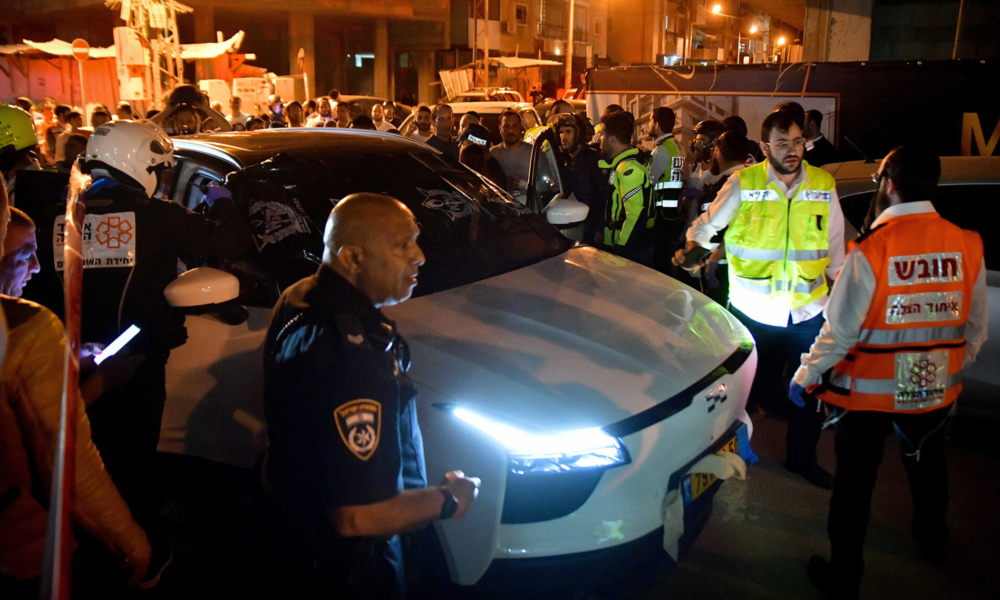Israel
Anger and fear growing in Israel

Two Israeli fears have come to pass. The rioting and demonstrations of last April and May in mixed Jewish-Arab cities is seemingly back. As are attacks by West Bank Palestinians who appear to be copying lone-wolf actions carried out by Israeli Arabs. But there’s one more element now in the mix.
Two of the three perpetrators who killed 11 people within a span of eight days late last month were supporters of Islamic State (IS) and had served jail time for being in contact with IS operatives abroad. Several media outlets affiliated with the organisation have in recent weeks been running campaigns encouraging IS supporters to carry out terrorist attacks against Israelis. They were quick to claim responsibility for the attacks and praise the perpetrators.
The Israeli military estimates that about 200 Israeli Arab citizens identify with IS and at least 20 of them are capable of carrying out attacks. Authorities are worried about possible IS sleeper cells around the country.
I was already reporting on the rise of IS in Israel 10 years ago. In 2015, I interviewed the father of a 19-year-old Israeli Arab, Muhammad Said Ismail Musallam, who was identified in a shocking online video, dressed in an orange jumpsuit and confessing to being a spy for Mossad, Israel’s intelligence agency. Moments later, he was shot by a boy who appears no older than about 12.
His distraught father admitted to me that his son had travelled to Syria but said that the claims of him being a spy were groundless. The last time his son had phoned was to beg him to wire money urgently to him. I interviewed the family in their apartment in an ultra-Orthodox neighbourhood in Jerusalem. When I enquired why they lived there, they said it was cheap and why not?
A year later, I tried to interview the sister of an Israeli Arab man alleged to be fighting in Syria for IS. She asked us to leave the property and not air the story for fear that she, a student at the Hebrew University, and her family would be targeted. All she would say is that they hadn’t heard from him for a long time.
Over the years, a few dozen Israeli citizens are known to have travelled to Syria, Iraq, and Egypt’s Sinai Peninsula to join the ranks of IS there. Several of them have been killed in fighting, while the rest are reportedly being slated for arrest as soon as they attempt to make it back to Israel.
Until now, the group hasn’t been particularly active in Israel, the West Bank, or Gaza, and in spite of growing concern, there’s little evidence of growing support for it. It’s important not to overplay its role in the recent attacks. Many experts fear that what we’re witnessing is more a case of lone-wolf initiatives than an uptick in IS activities in the country. The Israeli government has asked the public to refrain from uploading videos from the scenes of attacks on social media to prevent copycats.
As Ramadan gets underway, this is always a tense time in Israel. The country is bracing for more incidents, with Israel Defense Forces Chief of Staff Aviv Kohavi reportedly telling commanders that the military should be ready to remain on heightened alert for the next month or more.
Contributing to the tension is a lack of Palestinian leadership that leads to individuals taking action on their own. Tensions never really abated since last year’s violence and even in February, police were still arresting people associated with those attacks. There are suggestions that the security reinforcements recently employed are part of plans drawn up after last year’s uprising and that the response this time will be more violent.
Prime Minister Naftali Bennett has called for “civilian volunteers” to defend the Jewish state. He was presumably trying to echo Ukraine’s president, Volodymyr Zelenskyy, who has urged Ukrainian civilians to fight the invading Russian army. Bennett may hope that in the current international climate, his comments will evoke little criticism. But Palestinian leaders have taken note and warned that he’s playing with fire. In recent months, there has been a rise in attacks by right-wing armed settler groups and in the past few days, such Jews have attacked Palestinians in at least three separate incidents, hospitalising several of them.
A former Israeli police officer was also found to have set up an organised armed Jewish group to operate in the West Bank. Though the police distanced itself from the group, officials haven’t worked to prevent it. The anger on the Palestinian street and concern on the Israeli one is growing, and it seems just a matter of time before the next deadly attack.
- Paula Slier is the Middle East bureau chief of RT, the founder and chief executive of Newshound Media International, and the inaugural winner of the Europcar Women in Leadership Award of the Absa Jewish Achiever Awards.
